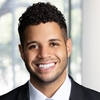Welcome to BARBRI, the trusted global leader in legal education. Continue to access the same expert-led Strafford CLE and CPE webinars you know and value. Plus, explore professional skills courses and more.
About the Course
Introduction
This CLE course will provide attorneys litigating bad faith or coverage issues with practical guidance for jury selection. The panel will discuss preparing for voir dire, the practical usefulness of social media and questionnaires, juror profiles, dealing with tainted jurors, and avoiding common mistakes during voir dire.
Description
Jury selection is a critical element to winning a bad faith or coverage case. Counsel must uncover jurors with biases against his or her client on key issues, such as liability or damages. Prospective juror attitudes are usually based on their own experiences regarding such things as personal responsibility, what counts as fair or unfair conduct, or even broken promises.
Time-tested jury selection techniques help litigators develop insights into the attitudes of potential jurors and thus identify those they do not want to serve. Ongoing jury science into how jurors decide cases and what attitudes are most impactful builds on those techniques.
Listen as our authoritative panel discusses successful techniques in preparing for voir dire, eliciting potential biases among prospective jurors, and selecting a jury that will be most open to supporting a client's position in bad faith or coverage case.
Presented By

Mr. Gabriel is one of the preeminent trial consultants in the country. Since 1985, Mr. Gabriel has been a leader in the field of jury research, jury selection and litigation communication with experience in nearly 2,000 trials in both the civil and criminal arenas across the country. CBS News has said that Mr. Gabriel is “by reputation, one of the best trial consultants in the country.” He has assisted counsel in the Aaron Hernandez acquittal as well as the Casey Anthony, O.J. Simpson, Phil Spector, Enron, Whitewater, Kwame Kilpatrick, Heidi Fleiss, and numerous other high-profile civil and criminal matters. Three cases he has participated in have resulted in United States Supreme Court decisions. Mr. Gabriel is the author of Acquittal: An Insider Reveals the Stories and Strategies Behind Today’s Most Infamous Verdicts about his high-profile trial work, which was optioned by Warner Brothers and developed for CBS by Jerry Bruckheimer Productions. He is also the co-author of Jury Selection: Strategy and Science, as well as contributing to Bennett’s Guide to Jury Selection and Trial Dynamics. Mr. Gabriel was a regular columnist for Lawyers USA on trial strategy and has authored numerous articles on litigation communication, social science, and jury research for numerous State Bar Journals and other legal publications including the American Bar Association, the Daily Journal, The Jury Expert, Notre Dame, and Loyola Law Reviews. He has also written feature articles for CNN.com and HLN.com on noteworthy trials and political/social issues. Mr. Gabriel appears regularly on CNN, CBS, ABC, NBC, Fox, MSNBC, CNBC, and NPR as a commentator on high-profile trials.

Mr. Heidtke is co-chair of the Duane Morris Insurance and Reinsurance Division of the Trial Practice Group. He represents clients in complex business disputes, and insurance coverage and bad faith litigation. For over a decade, Mr. Heidtke has counseled insurers on claims handling, provided coverage analysis and opinions, and litigated throughout the United States. Licensed to practice law in California, Illinois, Nevada, Oregon, Texas and Washington, he relies upon a broad swath of experience to advise clients on emerging trends to better prepare for, defend against and resolve high-stakes disputes. Mr. Heidtke’s experience includes representing clients in complex claims arising out of environmental contamination, products liability, construction defect and property damage, and personal injuries. He has also represented clients in class action litigation, including defending clients in multiple matters seeking more than a billion dollars in damages.

Mr. Smith is a member of Butler Snow’s Tort, Transportation and Specialized Litigation group. With a background in artificial intelligence studies and private sector security, Mr. Smith enjoys using the analytical skills he has learned to help clients achieve their legal, professional, and business development goals.
-
This 90-minute webinar is eligible in most states for 1.5 CLE credits.
-
Live Online
On Demand
Date + Time
- event
Wednesday, January 28, 2026
- schedule
1:00 p.m. ET./10:00 a.m. PT
I. Governing law
A. Statutory rules
B. Types of jury selection
II. Jury selection in bad faith cases
A. Claims handling
B. Failure to defend
C. Failure to settle within limits
III. Jury selection in coverage cases
A. Policyholder/assignee as plaintiff
B. Declaratory judgment actions—insurer as plaintiff
IV. Supplemental juror questionnaires
The panel will review these and other crucial issues:
- Are there certain juror "profiles" to avoid in bad faith or coverage cases?
- When might an employee of an insurer be a good juror for policyholders?
Unlimited access to premium CLE courses:
- Annual access
- Available live and on-demand
- Best for attorneys and legal professionals
Unlimited access to premium CPE courses.:
- Annual access
- Available live and on-demand
- Best for CPAs and tax professionals
Unlimited access to premium CLE, CPE, Professional Skills and Practice-Ready courses.:
- Annual access
- Available live and on-demand
- Best for legal, accounting, and tax professionals
Unlimited access to Professional Skills and Practice-Ready courses:
- Annual access
- Available on-demand
- Best for new attorneys
Related Courses
Recommended Resources

Navigating Modern Legal Challenges: A Comprehensive Guide
- Business & Professional Skills
- Career Advancement

Your Guide to Professional Development with BARBRI
- Learning & Development
- Business & Professional Skills
- Career Advancement
- eDiscovery

Building Your Book: Strategies to Secure Long-Term Success
- Business & Professional Skills
- Career Advancement
- Talent Development

